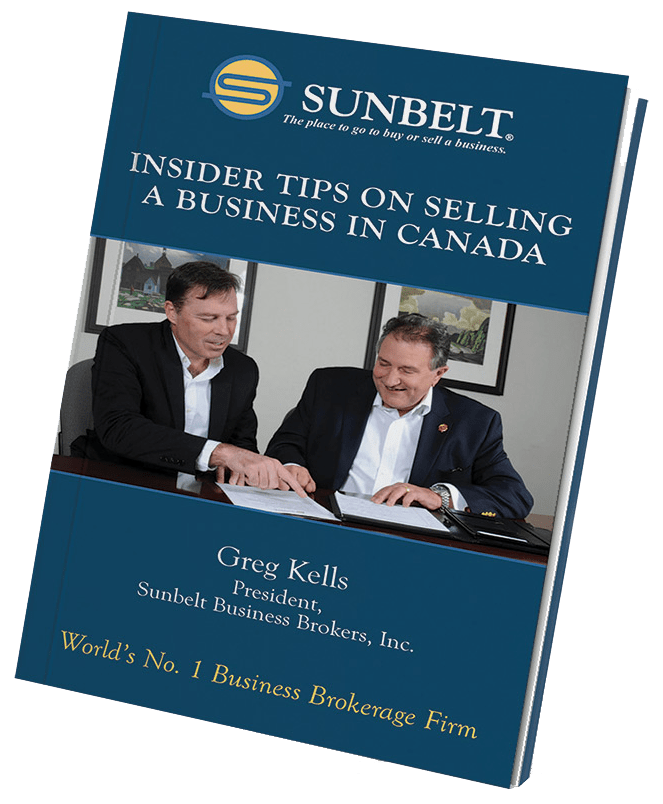Businesses come in all shapes and sizes, each with unique characteristics, potential, and value. Whether you’re a seasoned entrepreneur, a budding startup owner, or an investor looking to buy or sell a company, understanding the worth of a business is crucial. This is where the concept of a business appraisal comes into play. In this article, we’ll cover the ins and outs of the appraisal process, exploring what it encompasses, why it’s essential, and how it works.
Key Takeaways
- Business appraisals are a way of assessing the value of a company.
- There are various types of appraisals, including asset-based, income-based, and market-based.
- While appraisals can be done by yourself for a relatively simple business, getting a professional appraiser on board is the best way to ensure accuracy and credibility.
Table of Contents
- What is a Business Appraisal?
- How Does a Business Appraisal Work?
- What Are the Types of Business Appraisals?
- Business Appraisal vs. Appraisal of the Value of Equipment
- What is a Business Appraiser?
- Is it Necessary to Use a Business Appraiser?
- Can I Conduct My Own Business Appraisal?
- How Much Does a Business Appraisal Cost?
- Sunbelt Business Appraisers
What is a Business Appraisal?
A business appraisal, also known as a business valuation, is a process used to assess the economic worth of a company. The concept is similar to determining the fair market value of a house before buying or selling it, except in this case, the subject of evaluation is a business entity. These appraisals play a vital role in guiding decisions such as mergers and acquisitions and are essential to helping stakeholders make informed choices in the complex commerce landscape.
The valuation process involves a comprehensive examination of numerous factors contributing to a business’s financial health and overall value. The aim is to arrive at a realistic and objective estimate of the company’s worth.
How Does a Business Appraisal Work?
A business appraisal is designed to provide an accurate assessment of a company’s value. It involves a combination of financial analysis, market research, and industry knowledge. Here’s an overview of how it works:
- Engagement: The process begins when a business owner, investor, or stakeholder decides to get a business appraisal. They may hire a professional appraiser or engage in the services of a specialized firm.
- Data Collection: The appraiser collects a wealth of information about the business, including financial statements, tax returns, operational records, market data, and details about the company’s assets and liabilities.
- Analysis: The appraiser conducts a thorough analysis of the collected data. They may use various methods, such as income, asset-based, or market approaches, to determine the business’s value. The choice of method depends on the nature of the business and its industry, which we’ll touch on more in the next section.
- Normalization: In this step, the appraiser may adjust the financial data to account for anomalies or one-time events, ensuring a more accurate representation of the business’s actual financial performance.
- Market and Industry Research: The appraiser examines current market conditions and industry trends to assess how these external factors might impact the business’s value.
- Report Preparation: The findings are compiled into a detailed report. This document contains a description of the appraisal process, the chosen valuation methods, a summary of financial data, and a final estimate of the business’s value.
- Delivery and Review: The appraiser delivers the report to the client, who can then review the findings and discuss any questions or concerns.
- Use in Decision Making: The appraisal report is a valuable tool in various business decisions, such as selling the company, securing financing, settling disputes, or for tax and estate planning.
It’s important to note that business appraisals require expertise and adherence to industry standards. Ideally, they should be conducted by certified professionals to ensure accuracy and reliability.
Our Approach at Sunbelt Canada
When appraising a business, we use more than 12 methodologies each time. Based on the business and industry, we’ll typically use a combination of two or three of these methodologies with appropriate weighting to determine value. We have invested more than $1 million in software to enable us to do this quickly and accurately.
Insider Tips on Selling a Business in Canada Selling a business is complicated. You need a professional who can walk you through the minefield of details.
What Are the Types of Business Appraisals?
Depending on your unique situation and objectives, as mentioned above, various business appraisal options exist, including:
Asset-Based Business Appraisal
As the name suggests, an asset-based business appraisal focuses on evaluating a company’s tangible and intangible assets. These can include:
- Real Estate
- Equipment
- Inventory
- Patents
- Trademarks
- Intellectual Property
This method aims to determine the net asset value of the business, which can be particularly relevant in cases of bankruptcy or liquidation. Asset-based approaches are commonly used when a company’s financial performance is not the primary driver of its value. In such situations, creditors or potential buyers may be more interested in the underlying assets than the company’s earning potential.
Income-Based Business Appraisal
Income-based business appraisals focus on the company’s ability to generate income or cash flow in the future. They consider:
- The company’s historical financial performance
- Growth potential
- Risks associated with the industry and market
Common methods used in income-based approaches include the Capitalization of Earnings and the Discounted Cash Flow (DCF) analysis. At a high level, the Capitalization of Earnings method assesses the company’s sustainable earnings and applies a capitalization rate to estimate its value. On the other hand, the DCF analysis projects future cash flows and discounts them back to their present value.
Income-based appraisals are often preferred for businesses with a history of stable cash flow and reliable growth potential.
Market-Based Business Appraisals
Market-based appraisals compare similar businesses that have recently been bought or sold. This method is the most similar to how real estate is appraised based on the sale prices of comparable properties in the area. The appraiser examines various financial and operational factors and compares them to known transactions in the same industry.
The market approach provides a clear picture of the business’s value by considering what buyers would likely be willing to pay. It’s particularly useful for businesses in a robust market for buying and selling. However, it may not be as accurate for those with unique or specialized operations with limited comparable sales.
Fair Market Value (FMV)
Fair market value (FMV) refers to the hypothetical price at which a business transaction would occur between a willing seller and buyer, with both possessing reasonable knowledge of the relevant facts and neither being under compulsion to buy or sell. It’s essentially an estimate of the market value of a business under ideal, normal conditions. For tax and estate planning and divorce and partnership dissolution, for example, a fair market valuation is required.
Most Probably Selling Price (MPSP)
The most probable selling price (MPSP) refers to the most likely price a business or asset would sell for in the current market. Unlike FMV, MPSP might consider specific circumstances that could affect the selling price, like a time-sensitive sale, distress sale, or a limited pool of buyers. For purposes of internal planning or the sale or purchase of a business, a Most Probable Selling Price Report may be more appropriate.
Business Valuation: What’s Your Business Worth? ...
Business Appraisal vs. Appraisal of the Value of Equipment
It’s important to note that a business appraisal differs from an appraisal of the value of furniture, fixtures, and equipment. These appraisals do not consider revenue, profit, inventory, staff, or client loyalty. They are required by banks who provide Canada Small Business Loans, and insurance companies also often request them. The appraiser will typically be a Certified Machinery and Equipment Appraiser or Equipment Certified Appraiser.
What is a Business Appraiser?
A business appraiser is a trained professional specializing in business valuation. They play a pivotal role in the process, ensuring you get the accurate assessment you need. Additionally, a business appraiser performs the valuation, so you don’t have to. This means they’ll gather relevant data, choose the appropriate valuation method, and thoroughly analyze the business.
These professionals bring a few important competencies to the table:
- Expertise: Business appraisers are usually certified and have a deep understanding of financial analysis, valuation methodologies, and industry trends.
- Objectivity: Appraisers are neutral third parties, which is vital for maintaining the integrity of the valuation process.
- Industry-Specific Knowledge: Some appraisers specialize in particular industries, allowing them to understand the niche factors that can impact a business’s value.
Is it Necessary to Use a Business Appraiser?
While it’s not a legal requirement to use a business appraiser in most cases, having a professional by your side can help smooth out the process, especially for complex businesses with diverse assets and revenue streams. A business appraiser is also often necessary when buying or selling a company, securing loans, settling disputes or when it comes to tax compliance. It depends on the purpose and complexity of the situation.
At Sunbelt Canada, we work with a range of clients, from business owners, business purchasers, accountants, lawyers, banks and other lenders, on accurate appraisals. Our team understands the unique needs of each individual or professional as it relates to the appraisal, ensuring they receive the information they need in a timely manner.
Can I Conduct My Own Business Appraisal?
While it’s technically possible to conduct your own business appraisal, it’s essential to consider several critical factors before deciding to do so:
- Knowledge: Business appraisals are complex, involving financial analysis, market research, and specialized valuation methods. Conducting a proper appraisal requires a deep understanding of these processes.
- Bias: Self-appraisals may be prone to bias, as individuals may overvalue their own businesses due to personal interests. Business appraisers offer an impartial view of the process.
- Credibility: Appraisals conducted by certified professionals are generally more credible and have greater weight in legal, financial, and regulatory contexts.
- Complexity: The complexity of your business, industry, and the reason for the appraisal can significantly influence the accuracy of the valuation.
If you have a relatively simple business and need only a ballpark estimate of its value, online tools or rule-of-thumb methods can be an option. However, seeking a qualified business appraiser is the best choice for most businesses, especially those with substantial value or if you’re involved in legal or financial transactions.
How Much Does a Business Appraisal Cost?
The cost of a business appraisal can vary widely depending on factors like business size and complexity, the purpose of the appraisal, and the appraiser’s experience. The average cost of an appraisal begins at $2,500; however, we provide free ballpark assessments to potential clients before they commit to moving forward with the full appraisal.
Sunbelt Business Appraisers
At Sunbelt Canada, our business appraisers have the tools and expertise to assess the worth of your business and ensure accuracy every step of the way. We do more than 1,000 valuations yearly with greater accuracy than anyone else. Whether you’re buying or selling, we have you covered. Contact us today to learn more.





